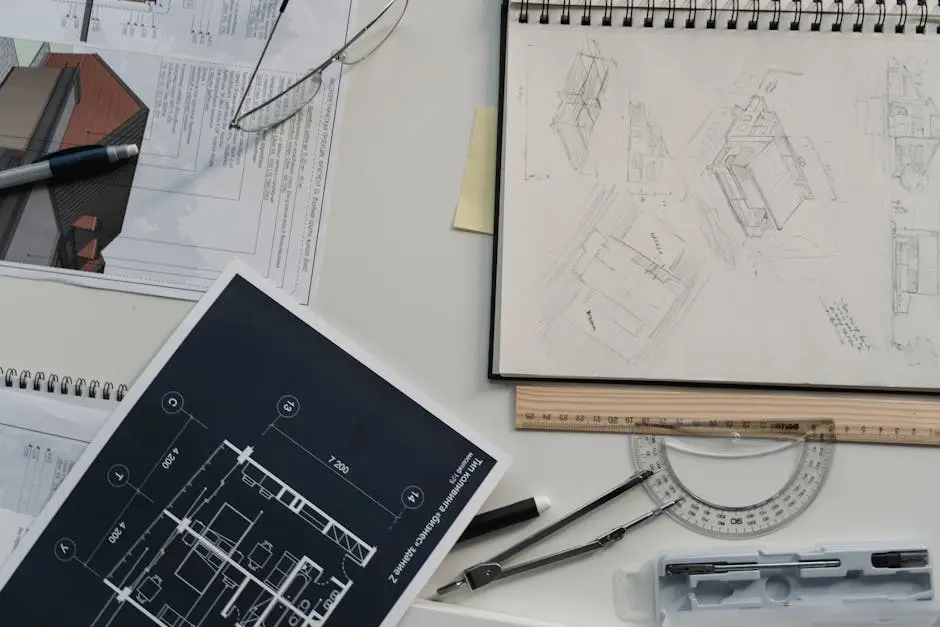
Building code inspections are a critical part of ensuring that construction projects meet safety and regulatory standards. However, many people, from homeowners to contractors, can inadvertently make mistakes that could lead to costly delays or rework. In this blog post, we will explore common pitfalls to watch out for during building code inspections, equipping you with the knowledge to navigate this process smoothly.
Understanding the Building Code Inspection Process
The building code inspection process can sometimes feel overwhelming, especially for those who are new to construction or renovation projects. Understanding the journey of an inspector, from planning to final reviews, is crucial. Inspectors typically follow a detailed checklist to ensure everything complies with local codes, but before they even set foot on-site, it’s vital to familiarize yourself with what they’ll be looking for.
One common misconception is that inspections are purely procedural or mere formalities. In truth, building code inspections exist to safeguard the future of your structure. They cover myriad aspects, including electrical safety, plumbing integrity, and structural soundness. By approaching your project with the mindset that inspections are there to help, you’re taking the first step towards a successful outcome.
Communication with your inspector can streamline this process significantly. Before the inspection date arrives, consider scheduling a brief meeting or call to clarify what’s expected. This proactive approach allows owners and contractors alike to understand specific concerns the inspector might have, leading to a smoother inspection day.
Neglecting to Review Local Regulations
One of the most crucial steps in preparing for a building code inspection is to review local regulations. Each area may have its own code variations based on climate, geography, and local government rules. Failing to do this can lead to a misguided assumption that your project meets the necessary standards.
For example, many homeowners overlook zoning laws that dictate the type of structures permitted on their property. These laws can define limitations such as how tall a building can be or how much of a lot can be built upon. By missing these regulations, you risk not only fines but also the possibility of having to tear down structures that were unapproved.
It is advisable to engage with local planning departments or hire professionals who are familiar with local codes. Their insights can help illuminate areas you might not have considered. Accessible resources, such as online databases, planning guides, and community workshops, are also excellent for enhancing your understanding of local regulations.
Insufficient Documentation and Permits
Documentation is a key element that often gets overlooked. Insufficient documentation and permits can stall your project or, worse, cause code violations. An inspection without the necessary paperwork can lead to severe penalties and project delays.
When commencing a construction project, it’s vital to ensure you have all required permits. This includes building, electrical, plumbing, and any specialized permits required for unique projects. Missing even a single permit can trigger a series of issues during the building code inspection process.
On the day of the inspection, ensuring that all relevant documents are readily available to the inspector can create a positive impression and project organization. This includes blueprints, previously issued permits, and any inspection reports from earlier stages. Being upfront and organized not only speeds up the inspection but also establishes credibility.
Overlooking Pre-Inspection Preparations
Pre-inspection preparations might seem trivial, but they can significantly impact the outcome of your inspection. Ensuring that your site is ready not only demonstrates professionalism but also shows respect for the inspector’s time. Simple steps, such as cleaning the work area and making relevant accessible paths, can set the stage for a successful review.
Having all necessary areas of your project open and ready for inspection helps avoid unnecessary delays. After all, if the inspector cannot clearly see certain installations, they may not pass the inspection, leading to rescheduled visits and added stress. Instead of waiting for the inspector to ask questions, take the lead by addressing potential issues proactively.
Consider making a checklist of items to prepare in advance of the inspection. This could include ensuring that all materials are correctly installed, verifying that safety equipment is in place, and also prepping for questions the inspector may have. By being thorough, you are likely to foster a more efficient inspection process.
Failing to Communicate Effectively with Inspectors
Open and honest communication with inspectors can’t be overstated. Many project holders underestimate the importance of building a rapport with the inspector before the inspection date. When both parties communicate effectively, it often leads to a more straightforward inspection process and reduces misunderstandings.
Be clear about your project’s scope and any unique features or challenges you’ve encountered. This transparency provides the inspector with a comprehensive understanding of your project, enabling them to focus on areas that matter most. It is also helpful to ask specific questions; inspectors appreciate when you seek to clarify expectations ahead of time.
On the day of the inspection, don’t hesitate to engage in dialogue with the inspector during their assessment. If they point out concerns or areas needing rework, take notes and ask for explanations. This not only helps in immediate problem-solving but also sets a constructive tone for your future interactions.
Rushing the Inspection Process
In a world that often prioritizes speed, it’s easy to overlook the importance of taking your time during the building code inspection process. Rushing can result in missed details that could later come back to haunt you. More often than not, this haste leads to subpar construction practices and ultimately fails to uphold safety standards.
Understanding that each step in the inspection matters is critical. Take the time to prepare thoroughly and allow the inspector to complete their work without interruptions. This means scheduling sufficient time for the inspection itself, rather than squeezing it into a busy day where distractions are abundant.
Additionally, remember that rushing through inspections may yield short-term benefits but can ultimately increase long-term expenses. If a rushed inspection overlooks major issues, rectifying these problems can lead to costly repairs, re-inspection fees, or even legal repercussions. Patience, in this case, is genuinely a virtue.
Ignoring Feedback and Recommendations
Once the building code inspection is completed, the next steps are just as crucial. Ignoring feedback and recommendations from inspectors is a tremendous mistake that can lead to future complications. It’s easy to fall into the trap of thinking you know best, but experienced inspectors have invaluable insights.
Instead, treat their suggestions as opportunities for improvement. If inspectors identify potential issues, take them seriously. Rather than viewing them as criticism, consider them as vital tools for enhancing your project. Creating a dialogue around this feedback can foster constructive working relationships.
Lastly, keep in mind that following up on recommendations might not just save you money but could safeguard lives. A construction site built with feedback in mind is more likely to meet safety standards. Ignoring this advice not only jeopardizes future inspections but can also put individuals at risk.
Final Thoughts
By being aware of these common mistakes and taking proactive steps to address them, you can help ensure a successful building code inspection process. Preparation, communication, and attention to detail are key to avoiding unnecessary stress and delays. Remember, a smooth inspection not only gives you peace of mind but also sets a solid foundation for your construction project.

